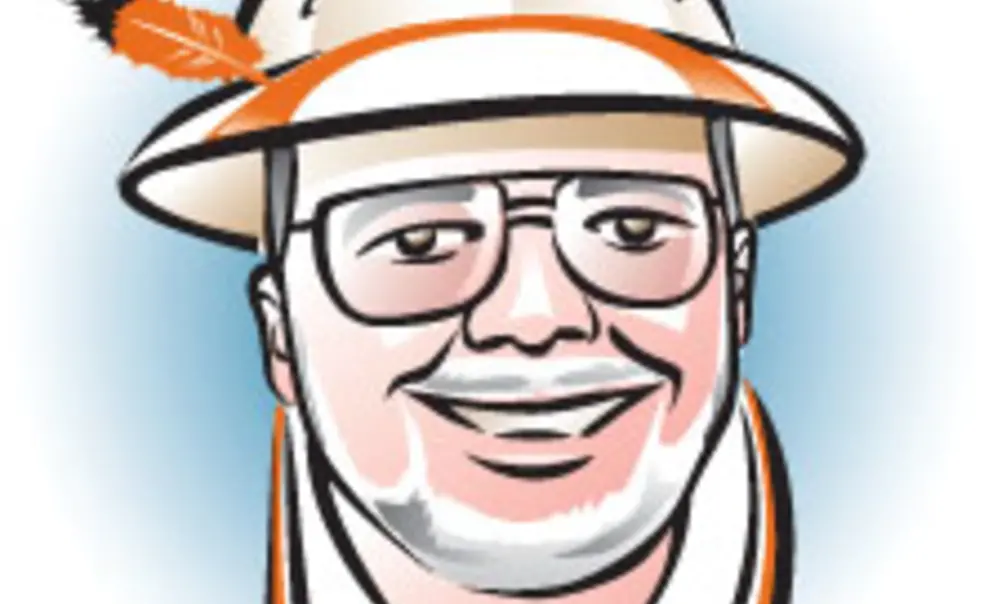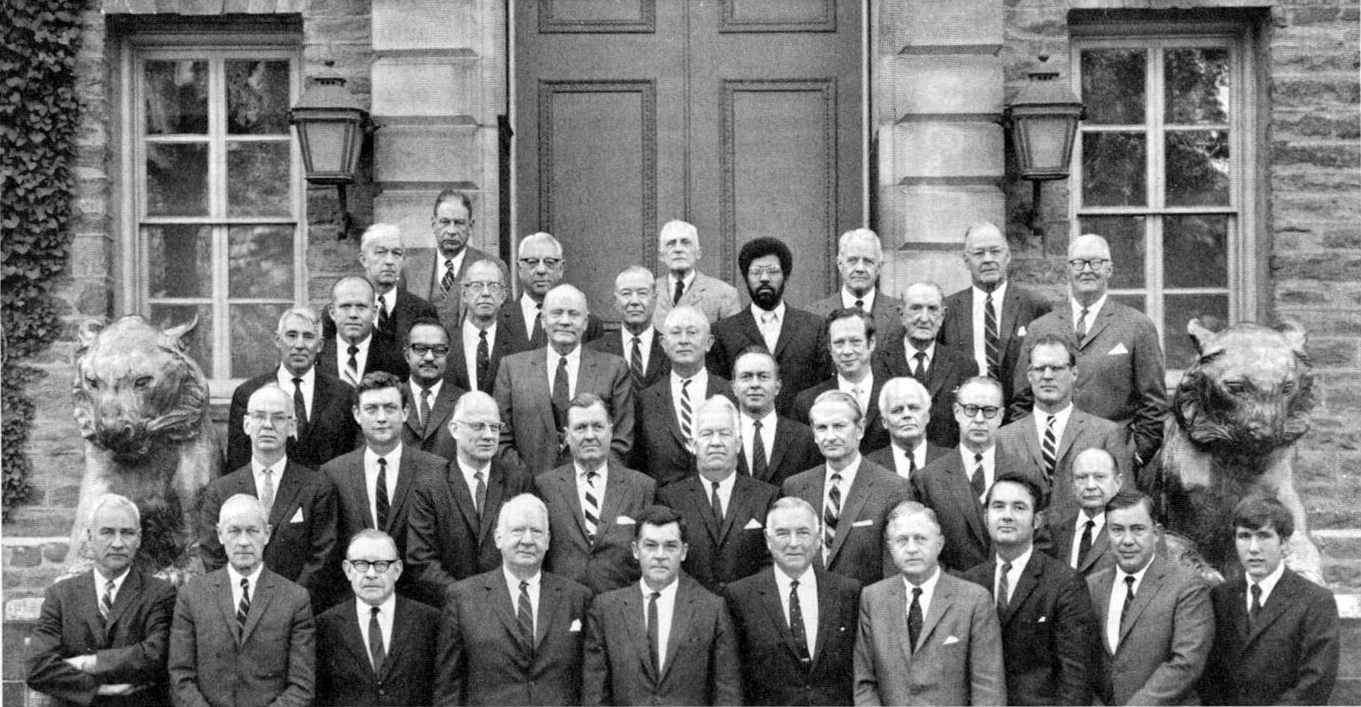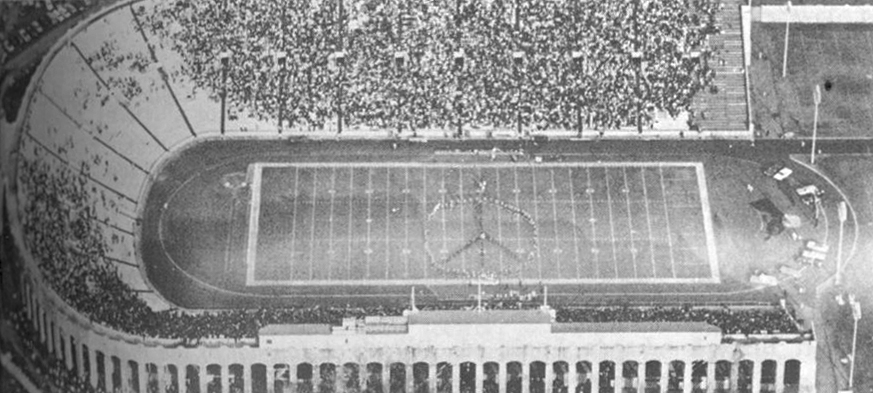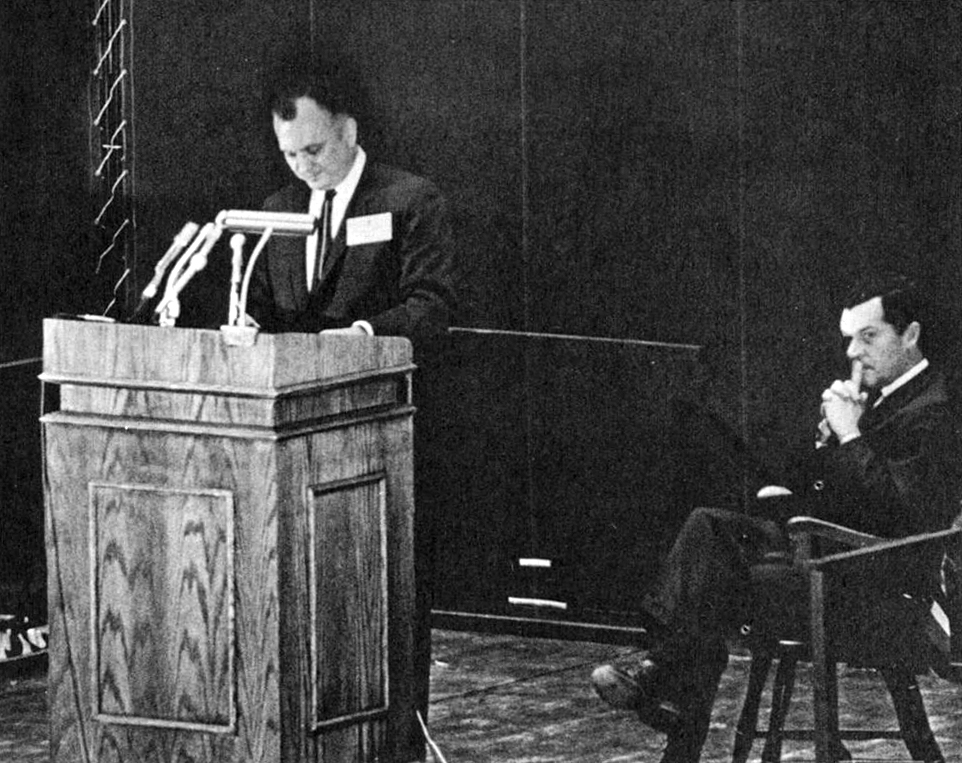Rally 'Round the Cannon
(Second of three columns on the fundamental transformations at Princeton 40 years ago)
“There must be some way out of here,” said the joker to the thief,
“There’s too much confusion, I can’t get no relief.
Businessmen, they drink my wine, plowmen dig my earth,
None of them along the line know what any of it is worth.”
Bob Dylan, “All Along the Watchtower,” 1967
In the May 12 column, which looked at the start of 14 months that transformed the University 40 years ago, we saw astounding changes piling up at Princeton in mid-1969: the Helm Committee report recommending the admission of undergraduate women, young alumni trustees, the Kelley Committee and the creation of the Council of the Princeton University Community (CPUC), even the demise of Princeton football’s iconic single wing. This seeming whirlwind turned out to be the calm before the storm.
Even without Vietnam, 1969-70 would have been a transformative year at Princeton. The Afro-American studies program began in September, led by historian Sheldon Hackney, soon to be Princeton’s provost and later president of Tulane and Penn. Simultaneously, 181 women undergrads appeared on campus, taking over Pyne Hall, and coeducation was simply reality, as if anybody knew what to do about it. The first step, at least, was a new assistant dean of students, Halcyon Bowen, notably not of the male persuasion. The words “as a gentleman” were dropped from the honor code pledge (“I pledge my honor that …”). President Bob Goheen ’40 *48, who loved the campus as much as any man alive, also loved his wonderful wife Peggy and a little quiet; they moved off-campus to Lowrie House, and Prospect began its transformation into a faculty club. The Princeton Notice arose to challenge The Daily Princetonian’s perceived liberal editorial slant. The famous Cannon Hoax [another column for another day] got the campus and the proctors psyched up for the 100th-anniversary football game at Rutgers. Renwick’s closed; if Hoagie Haven and Thomas Sweet’s both vanished the same day, the effect now might be similar.
With Vietnam, however, things seemed to start spinning off the rails.
The national impatience with the excruciating war was escalating; Richard Nixon’s creeping “Vietnamization” in supposed concert with the regime of Nguyen Van Thieu and Nguyen Cao Ky seemed unlikely to provide the decisive solution craved by a wide swath of American society, from high schools full of potential draftees to Walter Cronkite, who inadvertently had been part of the demise of Lyndon Johnson over the same issue.
The first two young alumni trustees, Richard Cass ’68 (front row, right, in above photo) and Brent Henry ’69, the first African-American trustee (fourth row from front, fourth from left) brought a new era to the board. At their very first trustees’ meeting in October, they introduced a resolution denouncing the war. It did not pass, but afterward a number of trustees met separately and individually signed the statement.
A huge portion of the campus – 3,000 people – crowded Dillon Gym in October as part of a national one-day Vietnam moratorium, in Princeton’s case a teach-in followed by a Chapel service honoring all dead from the war, then a candlelight vigil at the Statehouse in Trenton. The University took no stand: Classes nominally continued, but attendance was not taken.
The Nov. 14 Yale football game, with both teams fighting for the Ivy title, was coincidentally the same day as the anti-war March on Washington, when 400,000 people demonstrated and Richard Nixon chose to watch ... a football game on TV. Princeton students were torn; about 1,000 went to D.C., some carrying a banner that tellingly read “Even Princeton.” The band, however, decided to perform in Palmer Stadium. Along with their Yale counterparts, band members formed a huge peace sign on the field at halftime with a large banner that read “Make Peace, Not Politics,” and played the Navy hymn: “Eternal Father, Strong to Save.” A large portion of the huge crowd booed.
The night before, under the sponsorship of the month-old University Council, a Vietnam Assembly was held in the new Jadwin Gym; more than 3,000 people – students, faculty, employees, alumni, whoever wanted to attend – showed up as individuals to debate the war and present resolutions for a vote. Presided over miraculously by respected lawyer/trustee John Doar ’44 (of civil-rights and later Watergate fame), the huge town meeting voted 10 to 1 to withdraw all Americans by the end of 1970, and 2 to 1 to immediately cease support of the Thieu-Ky regime. Numerous other resolutions further to the left and the right were defeated. The only brief disruption was by huffy alumni.
Following a growing unease over the conduct of the military draft, which as then structured disproportionately grabbed the poor and non-white, a national draft lottery – the first since World War II – was held two weeks later. College men with risky low numbers began to consider the beauty of Canada in the summertime.
The social side of campus didn’t die, of course, but things were hardly smooth. The Triangle show, Call a Spade a Shovel, included sharp skits on President Nixon, Vietnam, and the John Birch Society. On the Christmas tour, audience members walked out in Plainfield, N.J., and Wilmington Del.; in Grosse Pointe, Mich., 60 percent of the crowd left in a snit. The selective clubs, still smarting from the advent of Wilson College and Stevenson Hall two years prior, moved 1970 Bicker from dorm rooms into the clubs to offer a warmer feeling to the sophomores. About two-thirds of undergraduates bickered, about the same proportion as in 1969. A group of Princeton women (a brand-new concept in itself) went into the “stag room” at the Nassau Inn and demanded service. Another group marched on the room of the Nassau Herald editor to object to the “male chauvinist” wording of some senior class poll questions; some of the topics, principally dealing with virginity, immediately vanished.
In February 1970, back on the political front, a “Repression Teach-in” was held in Dillon in response to the conviction and imprisonment of five of the Chicago 7 (the convictions would be overturned in 1972) for crossing state lines to demonstrate against the war at the 1968 Democratic Convention. The politicized trial, hopelessly muddling moderate and extremist sentiments and almost uncontrolled, alienated young people around the country, gave new life to the SDS, Black Panthers, and other radical activists. While the Princeton SDS was a sponsor of the teach-in, so were the Class of ’71, the UGA, and Whig-Clio. Leftist rhetoric was unrestrained, and almost no faculty attended, in contrast to the earlier Vietnam Assembly.
So almost inevitably, there was the Hickle Heckel. Less than a week after the teach-in, a University conference on “Ecology and Politics in America’s Environmental Crisis” included an address by the U.S. secretary of the interior. His name was Walter Hickel, a former governor of Alaska who had been accused of various ecological evils during his Senate hearings, but was turning out to be a strong environmentalist. Moved to Jadwin Gym because of community interest, his speech barely had started when about 75 demonstrators, many dressed unfathomably as Indians, began to chant and create disorganized noise simply to prevent Hickel from being heard. In that they succeeded (to the seething displeasure of Goheen, the only other person on the platform), but their ensuing disciplinary case in front of the brand-new Judicial Committee of the University Council ripped up the campus for the next month. Attempting to confine action to slam-dunk disciplinary cases, the deans charged only 13 students; all turned out to be SDS members, which some of the other demonstrators had not been. Some students sent an apology to Hickel, others dumped on the committee — whose new charter was foggy at best — for being stooges of the administration. One perpetrator had charges dismissed, 12 were either suspended or put on probation, and none was expelled. This left everyone frustrated. There was consternation among the alumni; the PAW report on the incident following the trial (in the April 28 issue) ran 10 full pages. The next November, Hickel would be fired by Nixon — after sending the president a letter critical of his Vietnam policy.
In April the Kelley Committee issued its final report, essentially outlining a total overhaul of University governance, with the CPUC, an ombudsman, and sizable changes in faculty rules and the UGA at its center. This powerful, tightly reasoned document was revolutionary in transparency, scope, and vision; in the roiling context of 1970 it seemed reserved and statesmanlike. It has been a material ingredient in Princeton’s subsequent ascent in global higher education, and remains so. It is Stan Kelley’s legacy, and a great one.
After a full year of unrelenting change, ferment, and challenge, the exhausted, distracted Princeton campus at the very end found something just about everyone thought was a fine, apolitical, even time-honored idea. The place was desperately, longingly in need of Houseparties. It was a yearning for mindless relief of any sort: Just today at least, let’s cheer up – things could always be worse.
So we tried to cheer up, and sure enough things got worse. Houseparties never happened.
Oh God said to Abraham “Kill me a son”
Abe says, “Man, you must be puttin’ me on”
God say, “No.” Abe say, “What?”
God say, “You can do what you want Abe, but
The next time you see me comin’ you better run”
Well Abe says, “Where do you want this killin’ done?”
God says, “Out on Highway 61.”
– Bob Dylan, “Highway 61 Revisited,” 1965
July 7: Richard Nixon’s “secret plan to end the war” turns out to involve invading Cambodia, and American campuses literally go ballistic.
















No responses yet